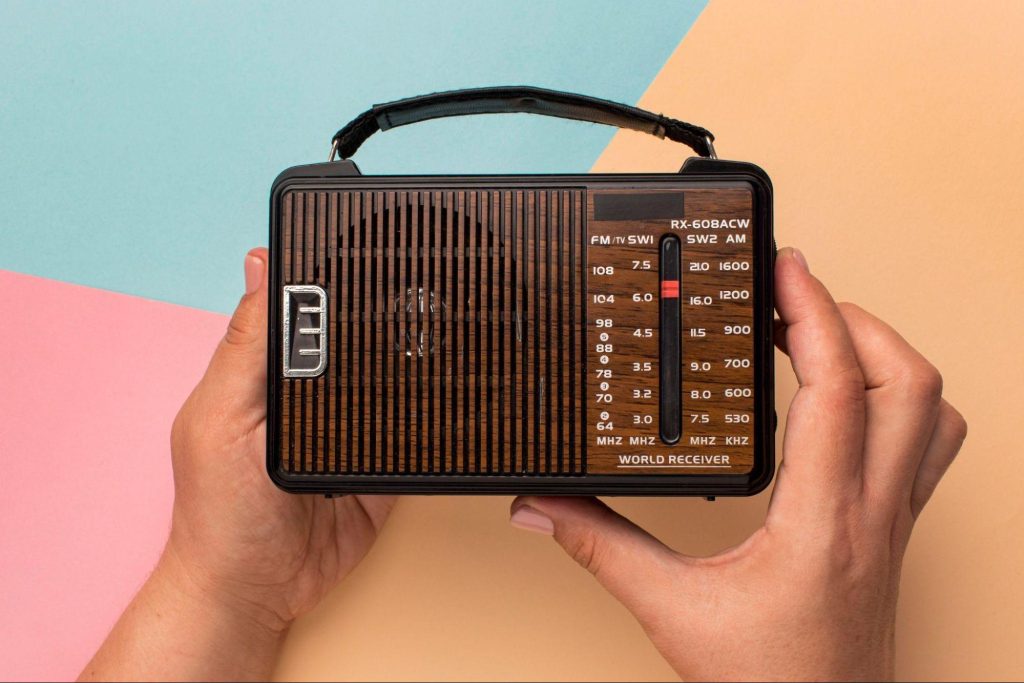How Technological Advancements Have Transformed Radio

In the 1920s, people were head over heels about the radio broadcasting that was just introduced. After that, radio has accompanied humans for many years on a daily basis. However, now after a little over 100 years since its first launch, radio does not have the same effect anymore. The technological advancements of the recent years have removed radios out of the frame, with multiple other devices and apps that have substituted the radio.
Nevertheless, there are still fanatics (usually the older generations who have a difficult time adapting to new tech developments) who listen to the radio just as frequently. If you ever talked to one of these people about this topic and asked them why is radio important, they will surely start explaining its importance and why it should still be part of our lives.
But, the question of today is, have you ever thought about how technology has impacted and transformed radio? Has it only had a negative effect or also a positive one? If these are also your questions, you have landed on the right page. In today’s article, we will explore these questions and much more, so join us!
The digital revolution and radio
It goes without even saying that we have experienced a digital revolution, especially in the past 20 years. This revolution, as all revolutions do, has brought people worldwide many benefits. One of the big changes that happened with this occurrence is moving from analog broadcasting to digital broadcasting.
Radios used to make use of analog broadcasting which often was interrupted, especially in more isolated or mountainous areas and the quality wasn’t always good. The digital revolution has made it possible for radios to work significantly better with clearer sound and more channels.
The internet radio
Right after the internet was easily accessible to many people globally, internet radios started to emerge. Radio business owners saw that people are starting to use the internet for everything, and they answered that call. As a result, internet radios and streaming services were born which are just as popular even today.
In the past, people used to play the radio in their car to listen to music, while now they have the possibility to play any song through platforms like Spotify, Apple Music, Pandora and so forth. In addition to those platforms, radio stations started having their own websites and apps where they broadcast their channels and could be listened to from anywhere in the world.
The role of podcasts
The rise of podcasts is seen as a successor of radio for many people. The reason behind it is the fact that podcasts offer the most “radio-like” content and experience. Podcasts can be recorded on video and then uploaded, but also recorded on audio only and then uploaded on one of the internet platforms. Podcasts have become so famous that even brands are creating their own podcasts now to communicate with their audience.
The best thing about podcasts and what could be considered an advantage over radios is the ability to listen to anything you like whenever you like. This was obviously not the case with radios since you were bound to the channel’s program, and you could not interfere with what was playing and when it’s playing.
Integration with smart technology
Smart technology has invaded every corner of today’s life and radios have not been an exception. One of the smart technology integrations that can be considered beneficial are the smart speakers. A lot of devices, including personal smartphones, have the feature of smart speakers which you can use to ask for anything.
In the past, using a radio device with antennas meant you had to turn it on but also adjust its antennas into the right direction so that it would play the desired channel. That has changed completely now as you can simply ask your smart speaker on the phone or any other device to play the radio, without even touching the device itself and searching for anything.
Radio challenges nowadays
While tech advancements have transformed radio in multiple positive contexts, they have also posed challenges to this industry. The traditional radio stations have to constantly stay updated to the tech developments because digital platforms are extraordinarily strong competitors. As a result, there might come a time when traditional radio stations even cease to exist.
Nevertheless, all these tech advancements should be taken as an advantage from the radio stations. There are so many applications that have yet to be used when it comes to radio and technology. If radio stations focus on those benefits that technology brings, they can make their platform more engaging for the listeners and have different content strategies.
